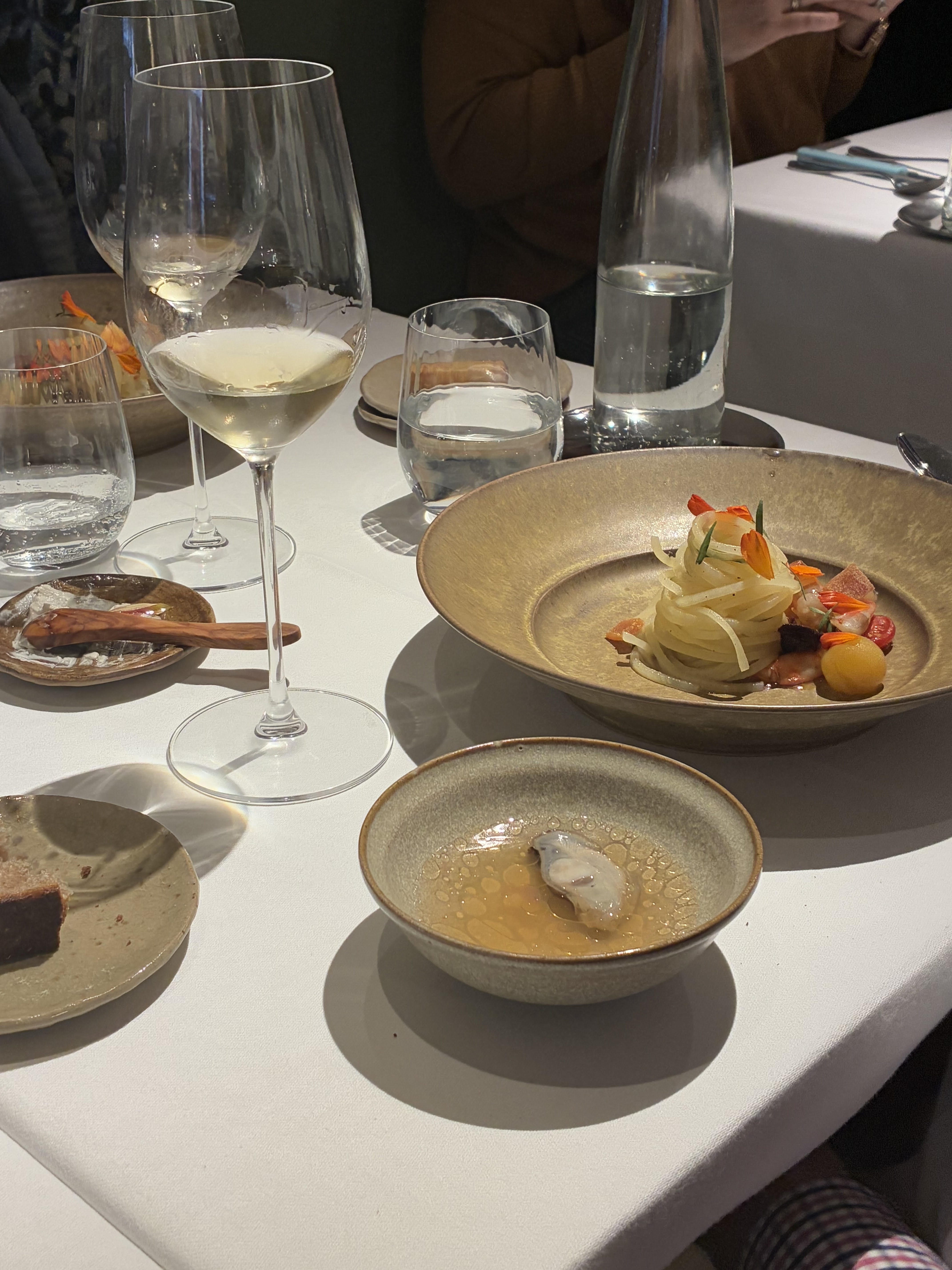 Image courtesy of Fiona McMurrey
Image courtesy of Fiona McMurrey
In a dimly lit Paris wine bar, the sommelier pours a cloudy glass of Gamay that smells faintly of cherries and something wilder, more alive. It’s vibrant, unpredictable, even a little funky. The couple next to you takes a sip, delighted. The man at the bar grimaces: “C’est pas du vin, ça.”
That — in a sentence — is the debate tearing through France’s wine world today.
Natural wine, once a fringe curiosity poured in Brooklyn basements and Berlin pop-ups, has become the lightning rod of French viticulture. Its champions call it a return to authenticity. Its detractors dismiss it as hipster heresy. And somewhere between the two, centuries of winemaking tradition are being rewritten, one spontaneous fermentation at a time.
From Fringe to Phenomenon
The term vin naturel sounds ancient, but its rise is surprisingly recent. In the 1990s, a handful of rebellious vintners in the Beaujolais and Loire Valley — people like Marcel Lapierre, Pierre Overnoy, and Thierry Puzelat — began rejecting the chemical interventions that had become standard in modern viticulture: pesticides in the vineyard, lab yeast in the cellar, sulfites in the bottle.
Their wines were unstable, raw, sometimes explosive — but they had something the industrial ones had lost: life. The movement grew slowly, quietly, until the 2010s, when natural wine found a global audience.
Today, every Paris arrondissement has its cave à vins naturels. Instagram is awash with orange wines, hand-drawn labels, and hashtags. To some, it’s a liberation. To others, a fad that threatens to reduce France’s most revered craft to a trend.
The Purists’ Revolt
For traditional vintners, natural wine’s rise feels like an affront not only to technique, but to identity.
They argue that wine is meant to express terroir, the complex fingerprint of soil, climate, and craft and that too many natural wines obscure that under a haze of bacterial unpredictability.
Behind the rhetoric lies a deeper anxiety: that “natural” has become a moral badge, implying that everything else is artificial or corrupted. For vintners who have spent decades honing consistency, the label can sting.
And there’s an economic dimension, too. Natural wines are often produced in tiny quantities, commanding cult prices in urban markets, while traditional growers struggle to stay visible in a crowded global landscape.
The New Generation’s Manifesto
To the younger winemakers, however, natural wine isn’t rebellion for rebellion’s sake — it’s resistance.
Decades of intensive farming have left many French vineyards depleted, their biodiversity decimated. The neo-vignerons see minimal intervention not as fashion but as survival.
For them, the cellar is a laboratory of intuition. Fermentation is spontaneous; nothing is filtered or clarified. Some wines taste like orchard fruit and salt air. Others smell faintly of cider or hay — or chaos. But that’s the point.
Natural wine invites imperfection, and in doing so, redefines beauty.
Between Authenticity and Aesthetics
If France’s wine culture once prized mastery, the natural movement prizes mystery the idea that a wine can be alive, changing, and deeply individual.
That doesn’t mean all natural wines are good. Many are flawed, and the lack of regulation (there is still no official “natural wine” designation in France) allows inconsistency to thrive. But even the skeptics admit that the movement has jolted French wine out of complacency.
Tasting rooms that once served only polished Bordeaux blends now feature skin-contact wines from the Ardèche or Jura. Somms speak fluently about microbial life and volatile acidity. And perhaps most importantly, young people once turned off by wine’s snobbery are excited to drink again.
A France Divided, but Rejuvenated
So, is natural wine the future of French winemaking — or a passing experiment?
The truth, as always, lies in the glass.
At its best, natural wine embodies the French paradox itself: romantic yet rational, rooted yet restless, both timeless and new. At its worst, it’s murky chaos masquerading as purity. But whether loved or loathed, it has forced the industry to ask the hardest question of all: what does authenticity really mean?
As one Parisian caviste put it, swirling a cloudy Chenin:
“Natural wine reminds us that perfection isn’t the same as truth. Sometimes, a little wildness tastes more honest.”